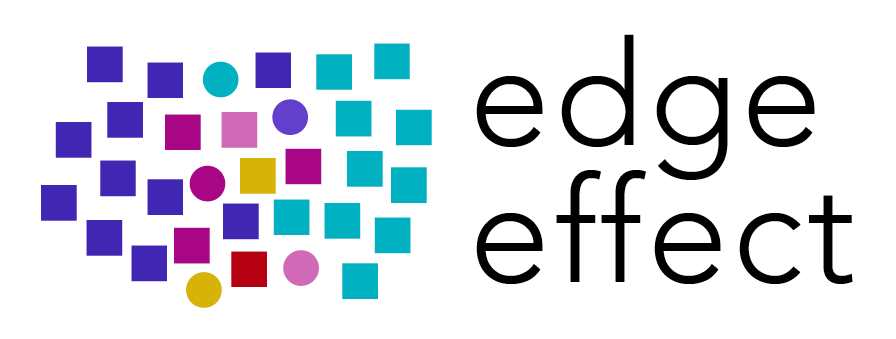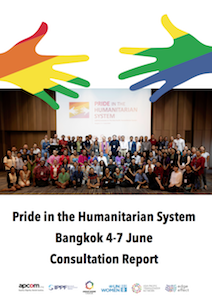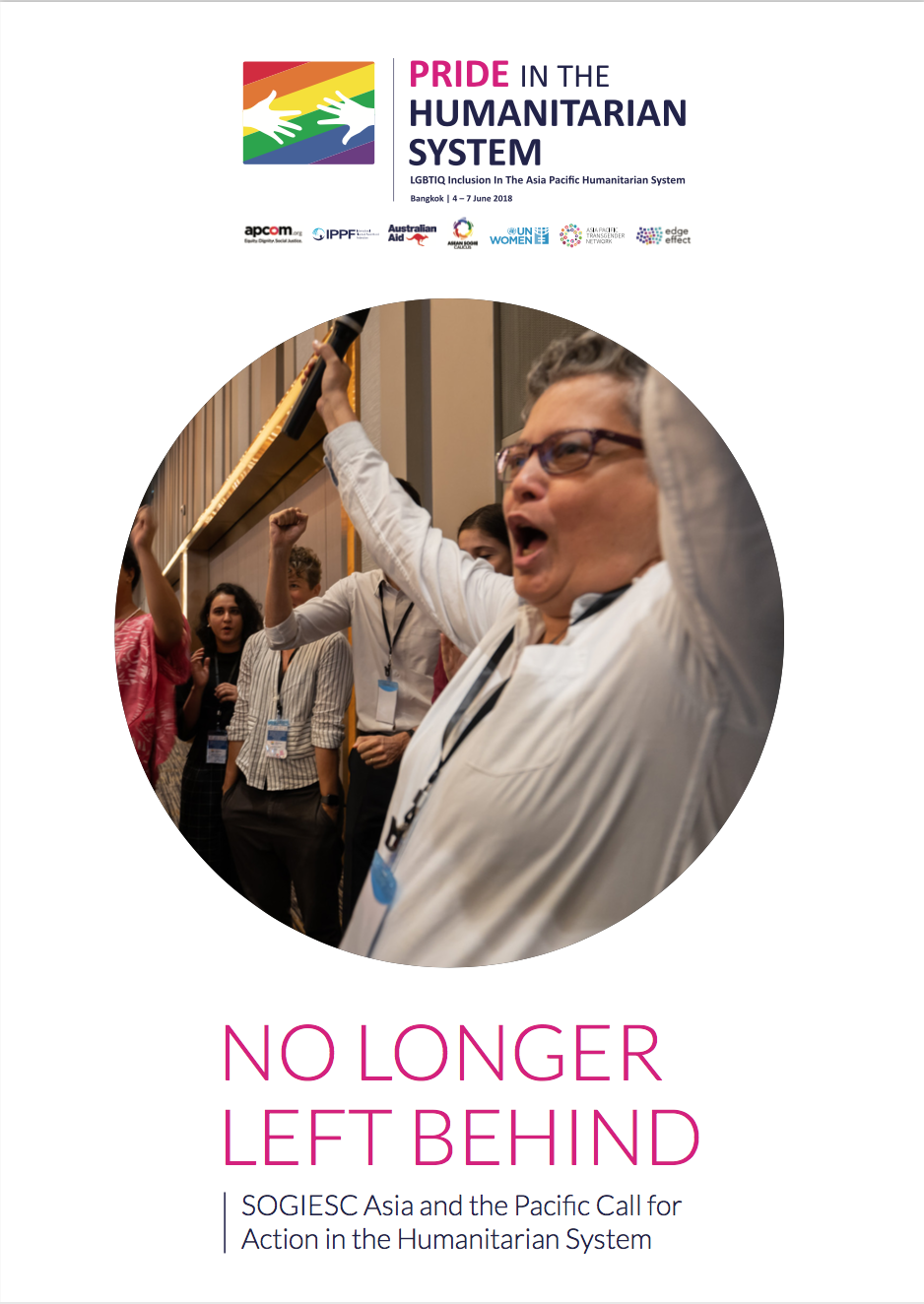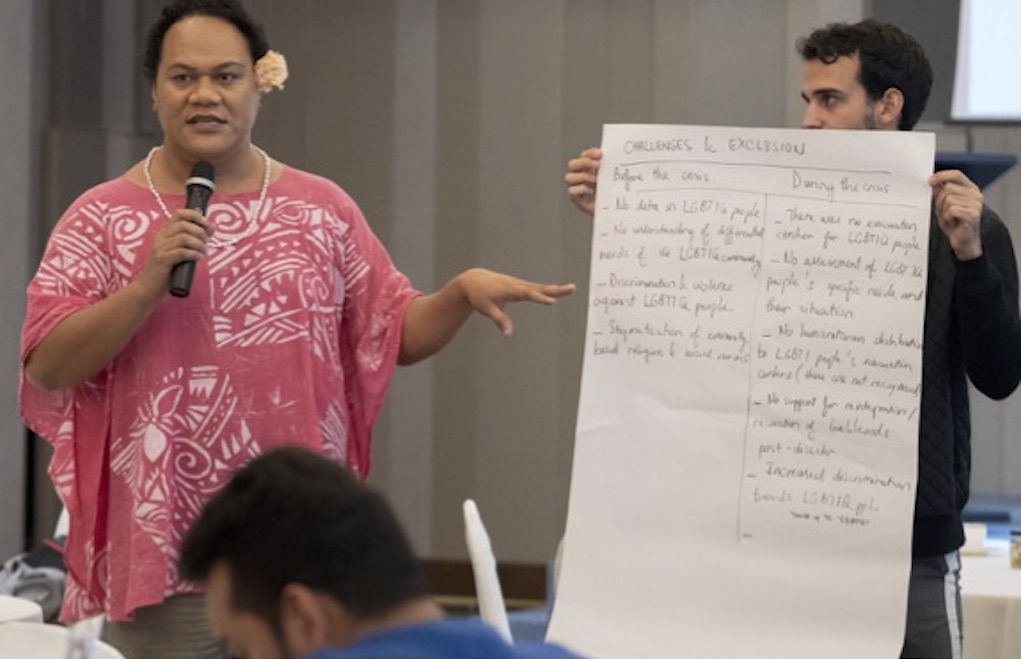
Pride in the Humanitarian System
Geography
Asia and the Pacific
Status
Complete
Partners
ASEAN SOGIE Caucus, APTN, APCOM, IPPF, UNWomen
Summary
Edge Effect joins the call for Pride in the Humanitarian System. Working with UNWomen, ASEAN SOGIE Caucus, IPPF, APTN and APCOM, we co-organised a consultation in Bangkok (June 2018) involving more than 100 representatives of sexual and gender minority CSOs (from 18 countries across South Asia, Southeast Asia and the Pacific) and regional humanitarian actors. The final report and the call to action can be downloaded below.
Why Pride in the Humanitarian System? People of diverse SOGIESC live with varying levels of criminalisation, legal and justice sector discrimination, and marginalisation in family, community, faith, schools, workplaces, service delivery organisations, public spaces and other institutions and contexts. There is a growing literature that demonstrates this marginalisation is exacerbated in humanitarian crises. People of diverse SOGIESC also find ways cope in the aftermath of crises, leveraging social networks for themselves and their communities. However, the humanitarian system has largely failed to recognise these capabilities or address the marginalisation through DRR, preparedness, response and recovery programs. Until now …
With Support From
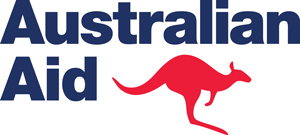
This project has been funded by the Australian Government through the Department of Foreign Affairs and Trade. The views expressed are not necessarily the views of the Australian Government.
